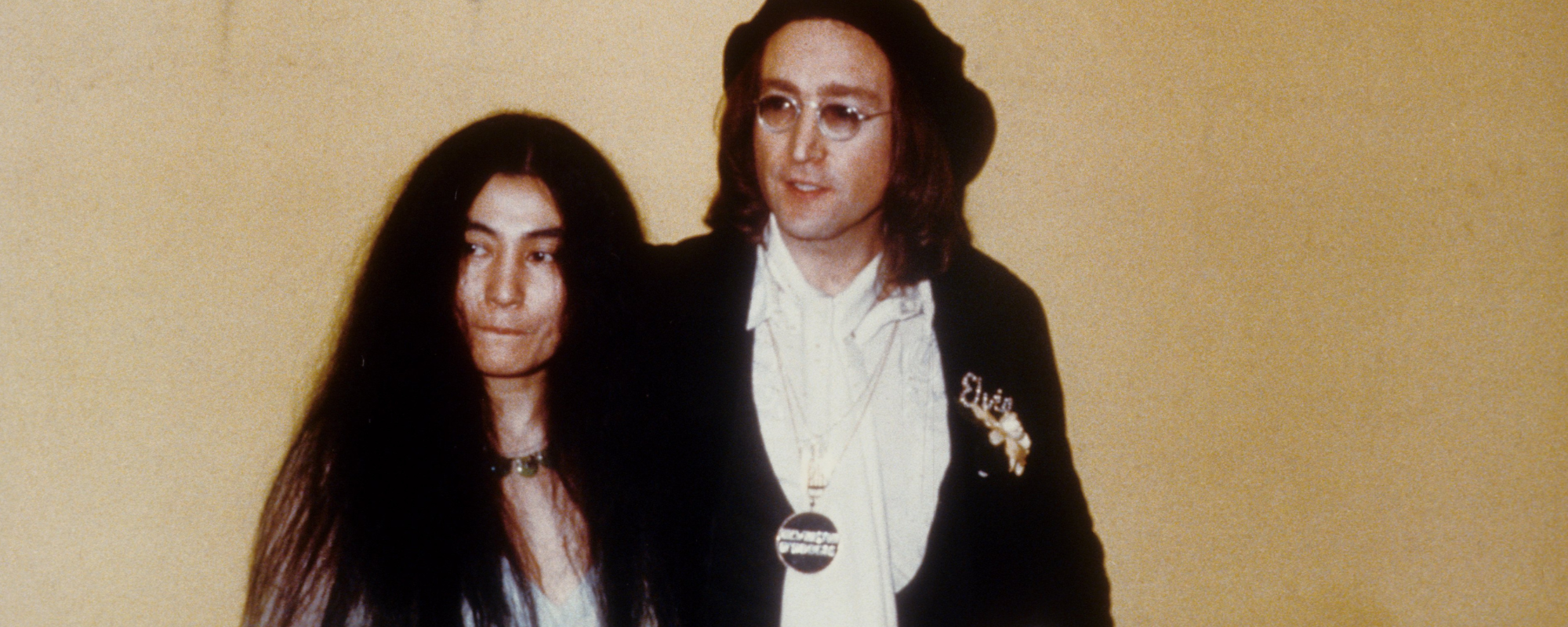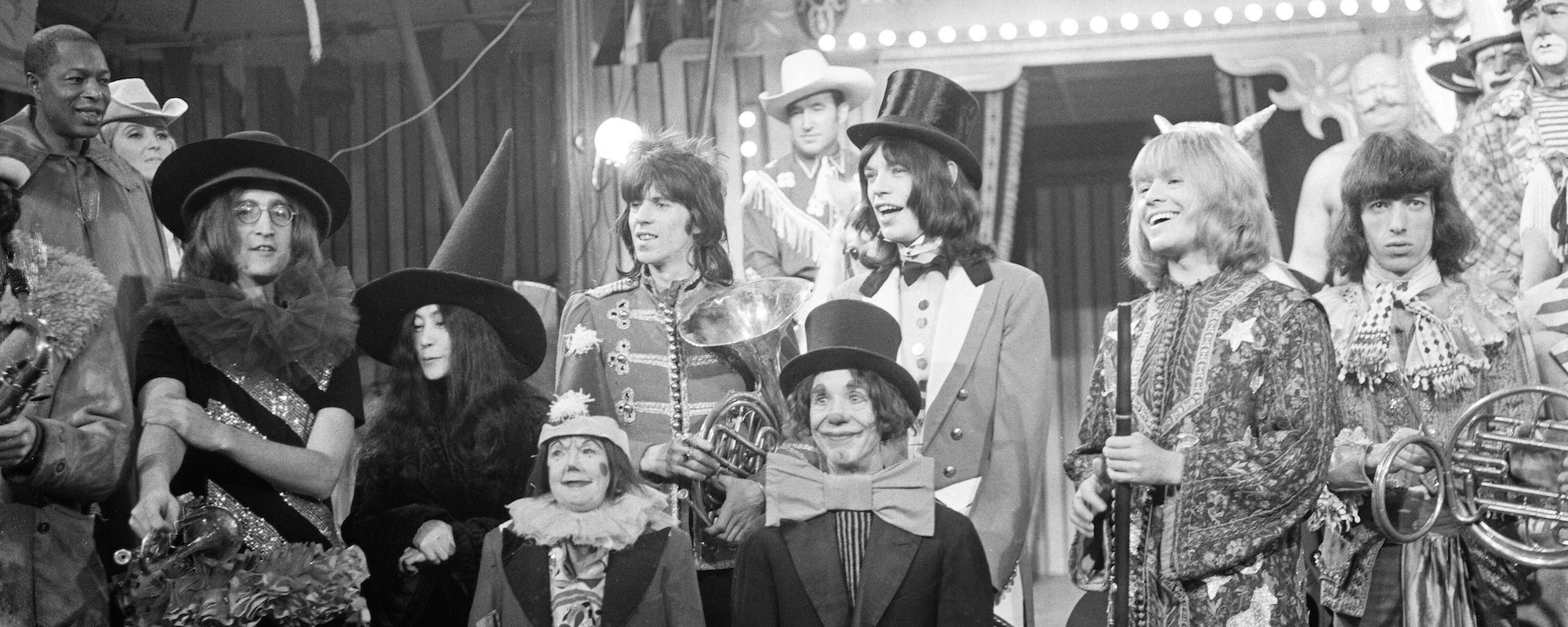After John Lennon released Rock ‘N’ Roll in 1975, he took a five-year break from recording. His son Sean was born in October of that year, and Lennon chose to stay home to enjoy the role of father in a way he was unable to experience with his first son Julian, who was born at the height of Beatlemania. When it came time to make new music, Lennon and his wife Yoko Ono were without a record deal. Almost every major label expressed interest in the former Beatle. The British independent label Stiff Records sent Lennon a telegram saying, “Heard you are recording. We’re prepared to offer five thousand dollars to sign with us.” Lennon found the offer funny but was interested in more than money when it came to signing a record deal.
Videos by American Songwriter
As offers came in, they were directed to Lennon. Yoko Ono would respond, only to find they only wanted to speak with Lennon. Those offers were declined. Record executive David Geffen sent a telegram directly to Ono asking to talk about the record. She showed it to Lennon, and he informed her to get in touch with him. Geffen flew to New York City the next day, where an agreement was reached. The record would be credited to both Lennon and Ono. Let’s take a look at the story behind “Dear Yoko” by John Lennon.
Wella hella hella
Even after all these years
I miss you when you’re not here
I wish you were here, my dear Yoko
Even if it’s just a day
I miss you when you’re away
I wish you were here today, dear Yoko
Even if it’s just one night
I miss you, and it don’t feel right
I wish you were here tonight, dear Yoko
Even if it’s just one hour
I wilt just like a fading flower
Ain’t nothing in the world like our love, dear Yoko
Lennon’s Muse
The closing song on John Lennon’s 1971 album Imagine was “Oh Yoko,” a song he began writing three years earlier when The Beatles were in India shortly after he met the artist. This time, he wrote “Dear Yoko” to celebrate his wife further. In 1980, Lennon told author David Sheff, “It says it all. It’s a nice track, and it happens to be about my wife. Instead of ‘Dear Sandra,’ which another singer might write about a woman who may or may not exist, this is about my wife.”
Oh, oh, Yoko
I’m never, ever, ever, ever, ever gonna let you go
Oh, oh, Yoko
I’m never, ever, ever, ever, ever gonna let you go
An Early ’50s Feel
The vocal intro to the song is a direct tip of the hat to Buddy Holly’s unique delivery. Earlier in the year, Lennon recorded a demo of the song directly into a video camera. A few months later, while vacationing in Bermuda, he taped the song again. Lennon recorded six takes before he captured the master on August 14, 1980. Double Fantasy co-producer Jack Douglas told author Ken Sharp, “It had an early fifties feel to it that John was so good at because he was good at that rhythm. I thought it was the lightest, funniest track on the record.”
Even when I’m miles at sea
And nowhere is the place to be
Your spirit’s watching over me, dear Yoko
Even when I watch TV
There’s a hole where you’re supposed to be
There’s nobody lying next to me, dear Yoko
No-Show Guitarist
Session guitarist Earl Slick, who had previously worked with David Bowie and Ian Hunter, was scheduled to play on the recording. Unfortunately, he was unable to make the session. Hugh McCracken played the guitar. Slick told Ken Sharp, “Here’s something that I’m not proud of. … I didn’t show up at the studio. I called, but I didn’t play on it. I was so [messed] up that I couldn’t get to the studio. This is part of who I was at the time. That was one of the very few times in all the years, even when I was out of control, that I ever did something like that, and, of course, I did it on a Lennon record.”
Oh, oh, Yoko
I’m never, ever, ever, ever, ever gonna let you go
Oh, oh, Yoko
I’m never, ever, ever, ever, ever gonna let you go
The Guitar Structure was “Hughie’s”
The song featured Tony Levin on bass, Andy Newmark on drums, and George Small on keyboards. Lennon instructed the musicians to model the song on Shirley & Company’s 1975 disco hit “Shame, Shame, Shame.” During the same session, lead vocals were recorded, and McCracken added multiple guitar parts as well as four different harmonicas. He played slide guitar and harmonica in unison. Douglas told Ken Sharp, “That was Hughie’s track in terms of how the guitars are structured. Hughie really took over the musical part of that song.”
Even after all this time
I miss you like the sun don’t shine
Without you, I’m a one track mind, dear Yoko
After all is really said and done
The two of us are really one
The goddess really smiled upon our love, dear Yoko
The overdub session occurred on September 22, 1980. This was the same day Lennon and Ono signed the record deal with Geffen Records, which would release Double Fantasy just two months later. The album also featured “Woman,” inspired by Ono, and “Beautiful Boy (Darling Boy),” as a tribute to Sean. At first, Double Fantasy stalled on the charts and received negative reviews. When Lennon was murdered, it became a worldwide hit and went on to win the Grammy Award for Album of the Year. About “Dear Yoko,” keyboardist George Small told Ken Sharp, “I just love that song. It’s such a fun song. That track kicks. Every time I hear that song, it lifts me up. There’s something great about the energy.”
When you purchase through links on our site, we may earn an affiliate commission.
Photo by Vinnie Zuffante/Getty Images













Leave a Reply
Only members can comment. Become a member. Already a member? Log in.